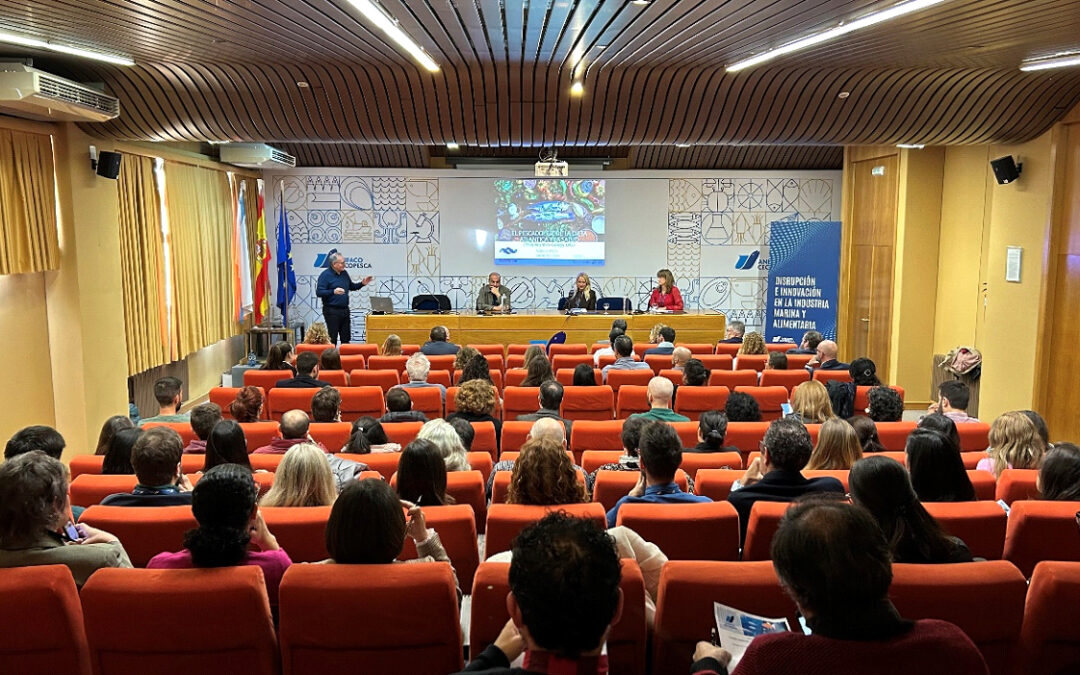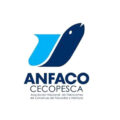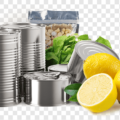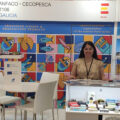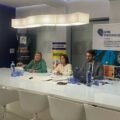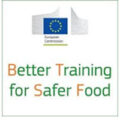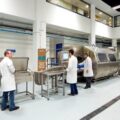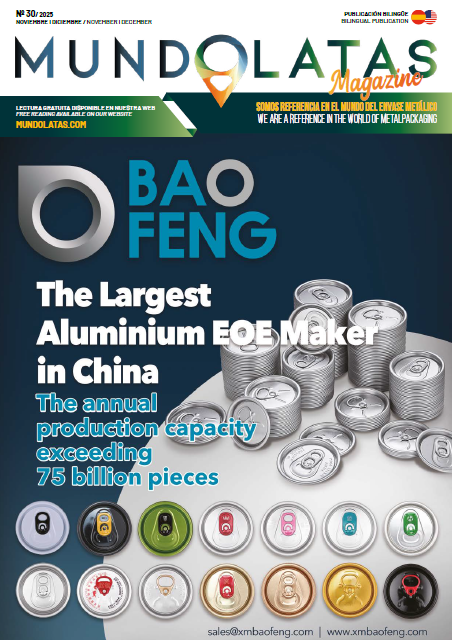With more than 120 attendees present, ANFACO-CECOPESCA has held the second edition of the event “Disruption and Innovation in the Marine and Food Industry”, an event that attracts professionals and scientists from all over Spain to discuss the challenges of future food systems, promoting an open innovation ecosystem that serves as a basis for projects in preparation for 2025.
The event was structured in four blocks oriented to “New technologies in nutrition and health”, “Circular and sustainable food systems”,“Production processes in the digital era” and “New approaches in innovation”. In the first block “New technologies in nutrition and health” participated Federico Mallo, professor at the University of Vigo; Ricardo Ramos, director of IMDEA Food and Celina Costas, head of the Biotechnology and Health Line of ANFACO-CECOPESCA.
The speakers highlighted the health potential of fish products, fish being a “superfood” and the application of omic technologies by the industry as a tool to achieve the development of a personalized and functional nutrition, which opens new opportunities for differentiation on the shelves and harmonize nutritional labeling on the front of the packaging.
In the second block “Circular and sustainable food systems”, Sergio Ramos, R&D&I director of Naturuel; Corina Porro, head of R&D at Nueva Pescanova and David García, director of LEV2050, participated. Different sustainability strategies in the meat and fishing sectors were presented, as well as the possibilities of different technological processes such as fermentation for the use of by-products. These types of initiatives open the door to sectoral hybridization and carbon footprint reduction, allowing companies to take advantage of every gram of raw material to adapt to climate change challenges or to have new alternative proteins to feed the world’s population.
In the third block “Production processes in the digital era”. participated Pablo Rodríguez, general manager of HERMASA; Patricia Remeseiro, head of Innovation, Product and Quality of QUEIZÚAR and Gonzalo Piñeiro, director of NORT3D. Different successful cases of adaptive digitization to the food sectors were presented, highlighting how the sensor technology, well applied, can allow the adaptation of artificial intelligence in companies, ensuring that harnessing its potential will be key to compete globally.
Finally, the block “New approaches in innovation” was attended by Eduardo Cotillas, Innovation Director of FIAB; Pablo Álvarez, Director of CIM-Mestrelab and Eva Durán, CEO of Durania Group, who highlighted the importance of innovation ecosystems, open and collaborative, to attract talent and drive technological progress in food. It is especially important to bring together entrepreneurs and their start-ups, investment funds, technology centers and companies, so that they can reinvest in each other and generate continuous growth in the face of the challenges, for example, of biodiversity loss. The second edition of this event has exceeded the expectations of its organizers and has counted with the collaboration of the Consellería do Mar, of the Xunta de Galicia, consolidating itself as a unique platform for the leadership of the marine-food sector.
Roberto Alonso, General Secretary: “The world’s population faces major food challenges, from sustainable food supply in the face of constant growth towards 2050, to adapting to climate change and biodiversity loss. In this process, we must draw guidelines for action with the aim of ensuring affordable access to food, nutritious and sustainable, and for which applied science and technology play a key role. Therefore, together with the technical staff of ANFACO-CECOPESCA, we will take advantage of the progress and conclusions of today’s event to convey to the European Commission our position for a correct design of the European food systems of the future and also ensure industrial production and employment in Spain with appropriate legislation.”

